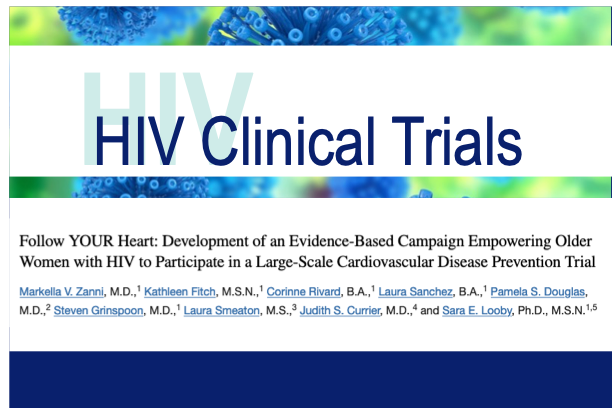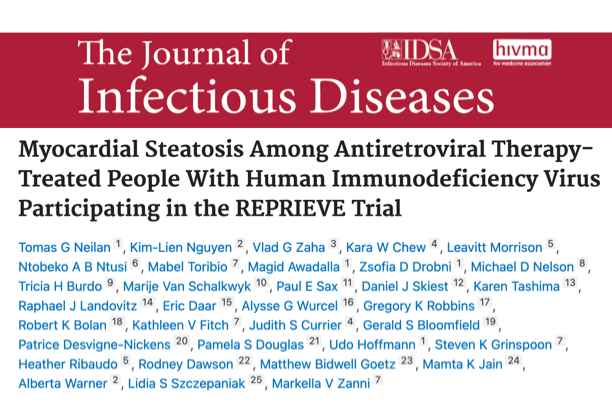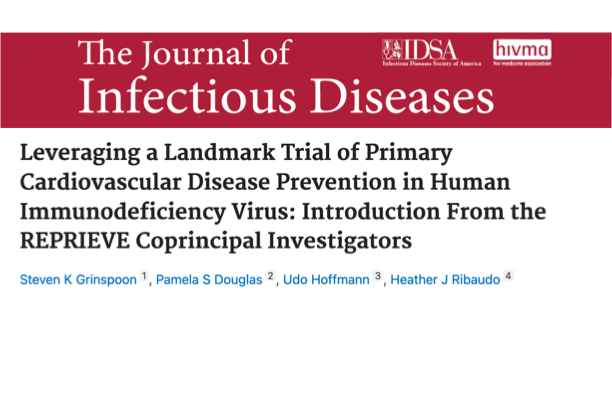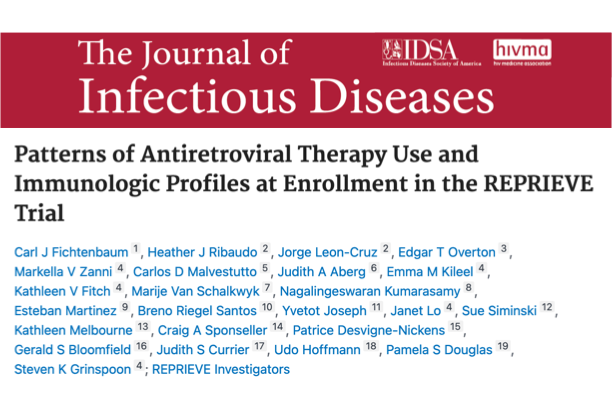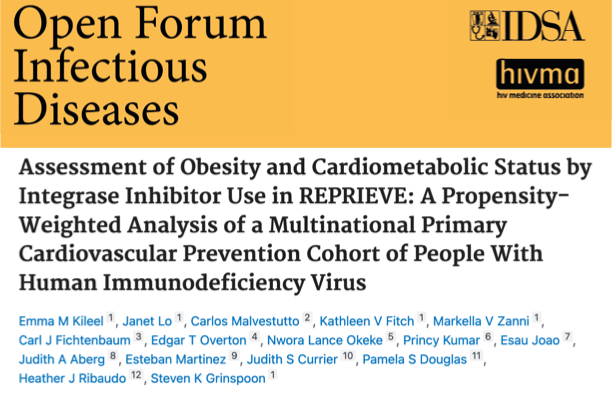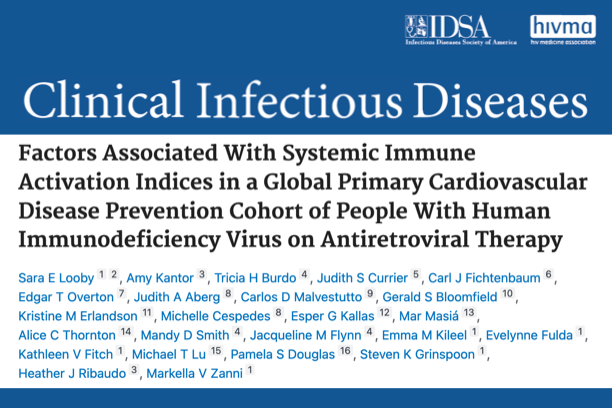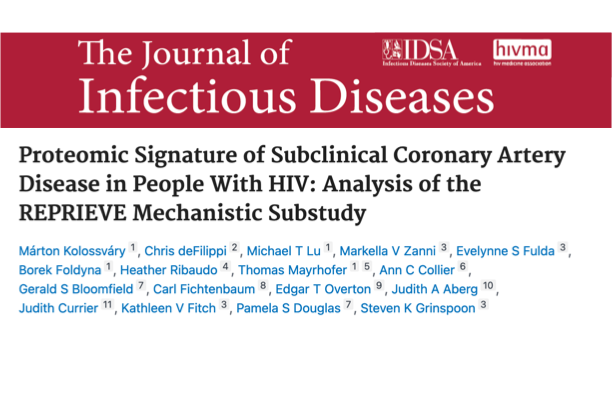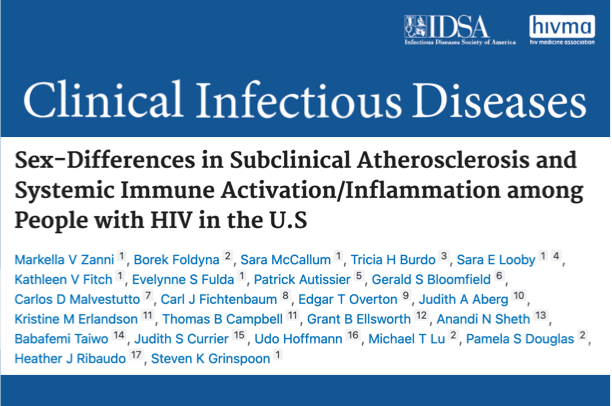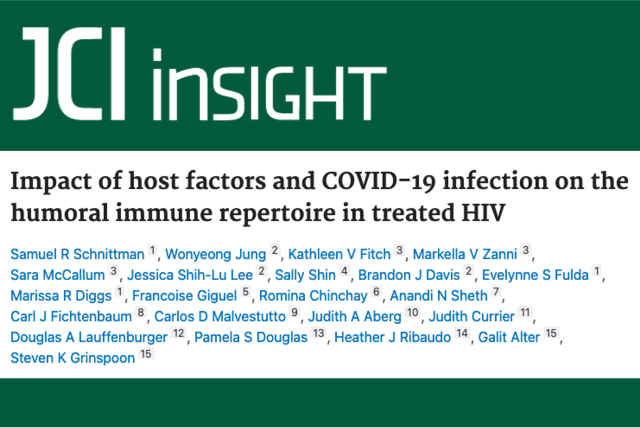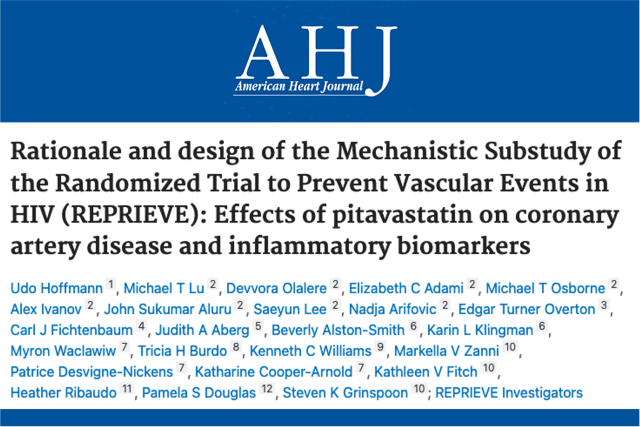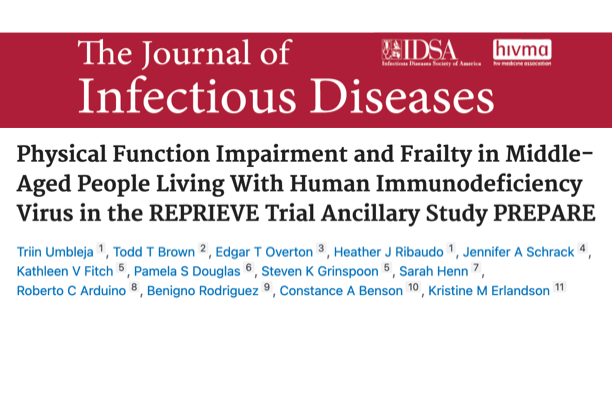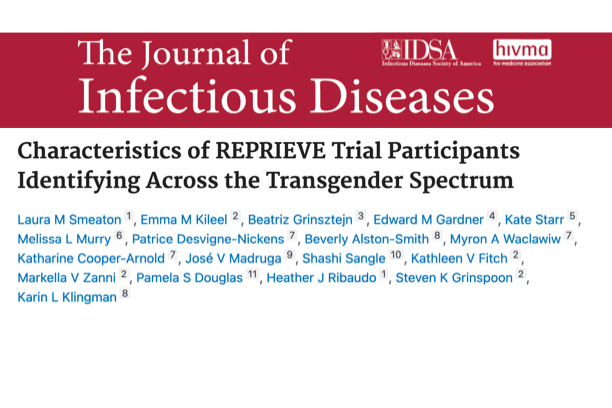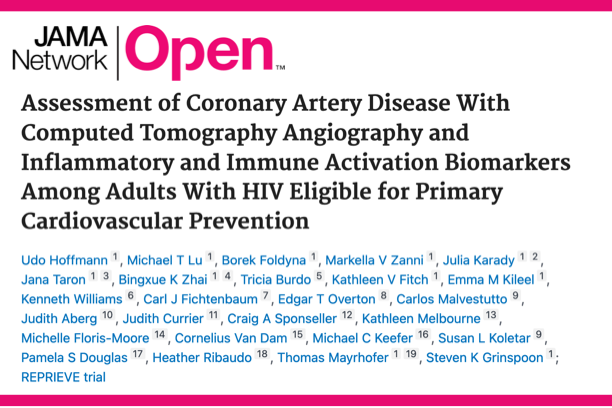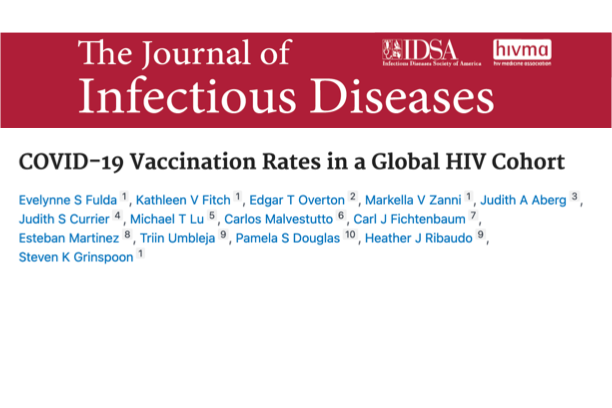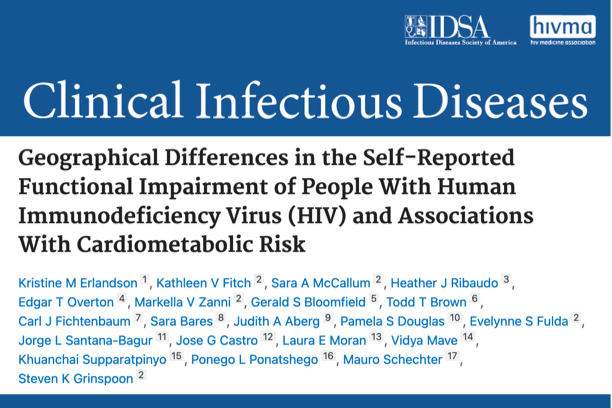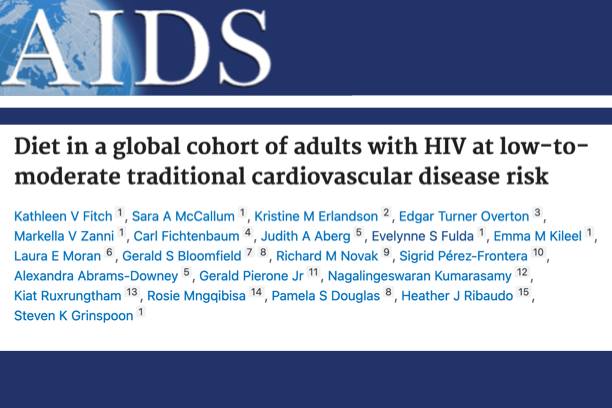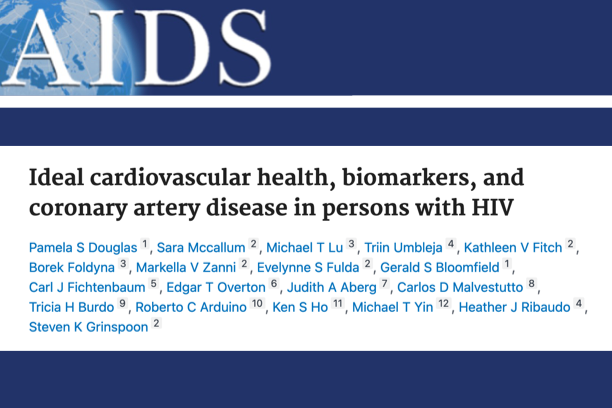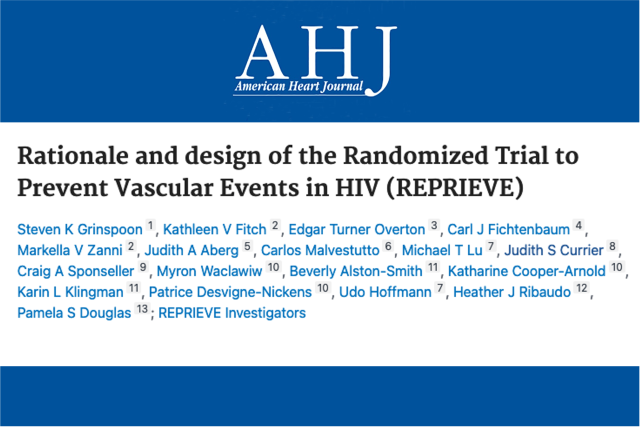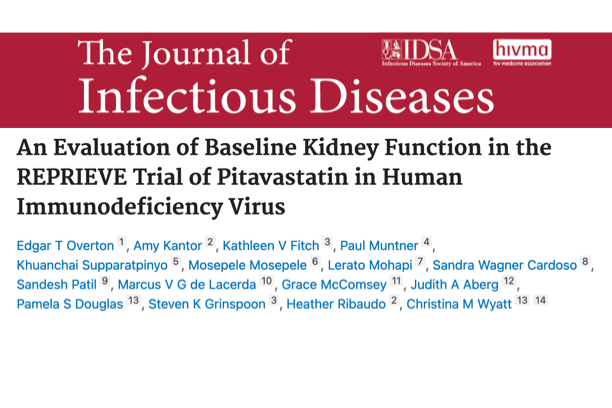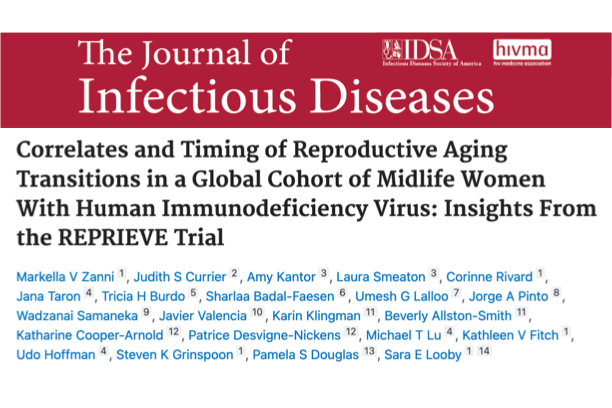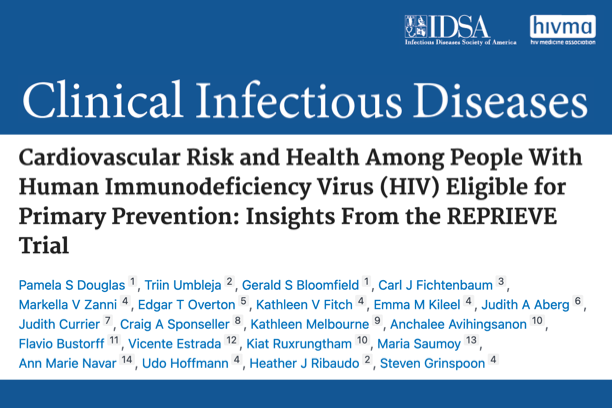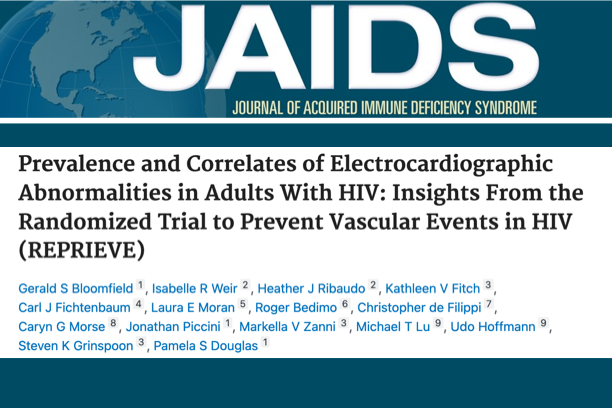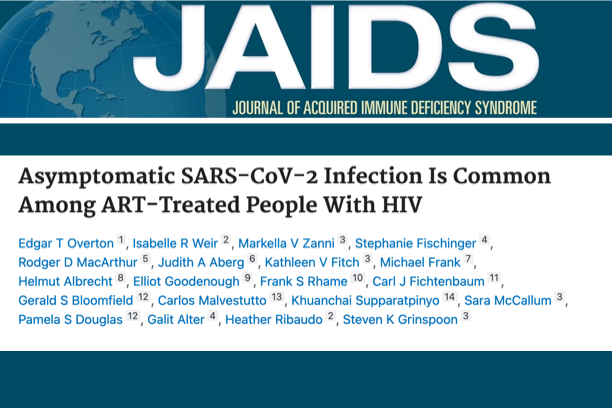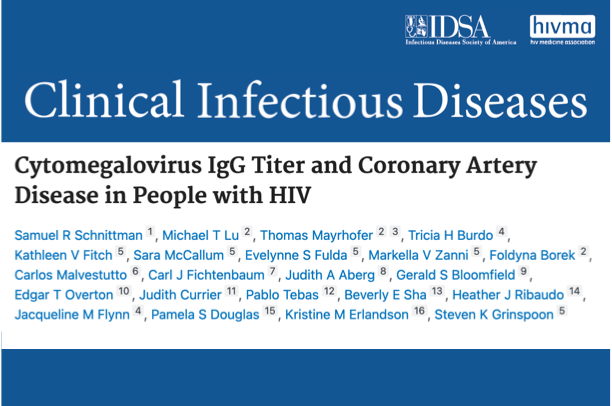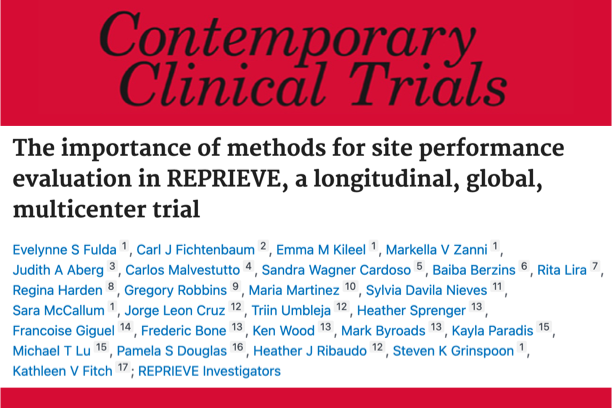A5332

Randomized Trial to Prevent Vascular Events in HIV - REPRIEVE
Currently, there are few strategies to prevent CVD in HIV-infected people, even though they are at high risk for developing CVD. Statin medications are used to lower cholesterol and may be effective at reducing the risk of CVD in people infected with HIV. The purpose of this study is to evaluate the use of pitavastatin to reduce the risk of CVD in adults infected with HIV who are on ART.
This study will enroll adults infected with HIV who are on any ART regimen (ART is not provided by the study) for at least 6 months before study entry considered low-to-moderate risk using the 2013 American College of Cardiology (ACC)/American Heart Association (AHA) guideline thresholds for recommended statin initiation. Total study duration will be approximately 96 months from the time the first participant is enrolled.
Participants will be randomly assigned to receive 4 mg of pitavastatin or placebo once a day for the entire time they are enrolled in the study. Study visits will occur at study entry (Day 0) and Months 1 and 4. Starting at Month 4, study visits will occur every 4 months for the rest of the study. Depending on when participants enroll, they will be in the study for a total of 3 to 8 years. Study visits will include medical and medication history reviews, physical examinations, blood collections, assessments and questionnaires, urine collections (for some participants), and an electrocardiogram (ECG) (at study entry only).
Some participants will have the option of enrolling in a substudy (Effects of Pitavastatin on Coronary Artery Disease and Inflammatory Biomarkers: Mechanistic Substudy of REPRIEVE [A5333s]). The substudy will evaluate the effect of pitavastatin on the progression of non-calcified coronary atherosclerotic plaque (NCP) and inflammatory biomarkers in adults infected with HIV. Participants in the substudy will attend study visits at study entry and Months 4 and 24. The visits will include questionnaires and assessments, a blood collection, and a coronary computed tomography angiography (CCTA). NOTE: The Mechanistic Substudy of REPRIEVE (A5333s) closed to accrual on 02/06/18.
Participants enrolled in REPRIEVE from select study sites, including international sites, through December, 2017, are included in the REPRIEVE Kidney Function Objectives Cohort to evaluate the effects of pitavastatin on parameters of kidney function in the setting of HIV infection. The analyses will also include an assessment of high risk groups and mechanisms driving kidney function decline in the setting of HIV infection.
Women and men enrolled in REPRIEVE after February, 2016 are included in an observational cohort (REPRIEVE Women's Objectives Cohort) facilitating assessment of sex-specific mechanisms of CVD risk and risk reduction among adults with HIV. This effort also includes an evidence-based recruitment campaign to enhance women's participation in REPRIEVE.
In response to the SARS-Cov-2 pandemic, a supplemental objective was added in 2020. To better understand how COVID-19 affects PWH and if pitavastatin may reduce risk, we will evaluate interrelated but independent key topics including epidemiology, host factors, and protective strategies. Starting from April 2020, COVID-19 assessment is completed at each study visit, and blood is collected for COVID-19 biomarkers.
DURATION: March 2015 - Ongoing
STUDY TYPE: HIV & Comorbidities
PHASE: 3
STUDY DESIGN: Randomized, parallel assigned, quadrupal masked interventional study
STATUS: Ongoing
ENROLLMENT: 7770 participants
POPULATION: HIV-infected volunteers aged 40 - 75 years old
NUMBER OF SITES: 137
SITE LOCATIONS: US, Botswana, Brazil, Canada, Haiti, India, Peru, South Africa, Spain, Thailand, Uganda, and Zimbabwe
RESULTS
